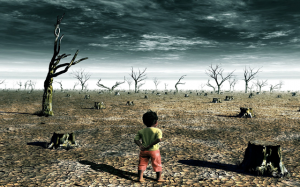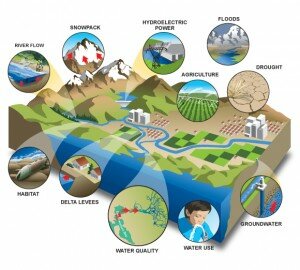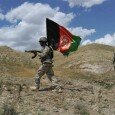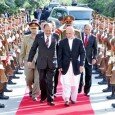By Faisal Raza Khan –
Protection of indigenous natural resources from foreign exploitation has never been an issue or priority in Pakistan’s foreign policy
Diplomacy – What’s that? Greek believe it’s of making a deal with other country or countries while some emphasized that actually it’s the art and practice of conducting negotiations between representatives of states but most believe diplomacy is the employment of a tact to gain strategic advantage or to find mutually acceptable solutions to a common challenge.
In fact, today it’s important to reach a diplomatic deal, with artistic negotiation, based on certain dynamic tactics, with strategic and humanitarian gain as ultimate target and a mutually acceptable solution of a common challenge of Climate Change.
Right at the onset of 21st century the consequences of global climate change became a major and a direct threat for the population around the world, extreme weather events across the world, heat waves in Australia, Europe, China, Japan and Korea, intense rain in parts of the United States, India and Pakistan, and severe droughts in California and New Zealand have recently highlighted the seriousness of the matter and compel all responsible countries to come and sit together to find-out a respectable way out for a sustainable human living.
Climate security is indispensable for global prosperity, for food, water and energy security as well as for an open world economy, cross-border cooperation and the rule of law. Now, what needed is to fight for our environmental and climatic or natural rights within and beyond our borders with diplomatic skills to attain success and way forward is – Climate Diplomacy.
Now, it’s important to see climate change through the foreign policy lens, climate diplomacy has not always been integrated into wider diplomatic efforts in Pakistan. An emphasis on climate diplomacy could potentially be a significant vehicle for Islamabad to influence international climate change negotiations, get economic and development gains and protect natural resources for sustainable future.
German watch in its climate risk index for 2014 put Pakistan among third most vulnerable and disaster-prone countries in the world. A country having only 0.5 percent total carbon emission but the worst hit of climate change impacts and the events since 2010 flooding episodes continue to dictate, where Pakistan is heading now? Only option in these extreme circumstances is to get through the disastrous situation and adapt and mitigate but at the same time, start debates at national level while initiate negotiations regionally and internationally for economic and sustainable development gains to address the worst case scenario in the wake of global warming.
In Pakistan, governments always speaking high on terrorism, regional conflicts and international or regional politics but never mentioned anything on water or climate induced issues, problems which could have potential to become regional conflicts and having serious implications on peace, security and socio-economic development. Countries in region should have to go for climate diplomacy to avoid any catastrophic destruction, which ultimately creates agricultural issues, food insecurity, decrease of per capita water availability, industrial breakdown, high rates of unemployment, rise in poverty, health issues, heavy burden on national exchequer and as a whole an economic meltdown which results in ultimate chaos.
Islamabad, ‘famous in indulging into the affairs of others’, never taken-up the water issue with India on merit, as a low-riparian country Indian dams are clear and visible threat for Pakistan, when water share snatched at the hands of India and possibly from Afghan side in future, when Indian trans-boundary pollutants spreading various water borne and air induced diseases in Pakistan, when pushing dangerous chemical effluents to Pakistani territory creates widespread deaths and even vanishing river fish, pollute underground water, affects agriculture, livestock, illegal exploitation of border natural resources (forests, soil, water and air) and marine destruction is on from neighbouring countries including India and Iran.
Protection of indigenous natural resources from foreign exploitation was never been an issue of foreign policy, trans-boundary pollution and environmental impact assessment (EIA), strategic environmental impact assessments (SEA), catchments areas along border zone were never been taken up in diplomatic discussions. Discussing the issue of Sir Creek is incomplete without all kind of marine pollution, causing damage to eco-system, deaths of fish, shrimps, affecting growth of mangroves (a jewel of Pakistani coast) and as a result Pakistan’s sea food market and overall economy are losing billions of dollars annually.
In the name of friendly countries killing of precious, vulnerable and mostly endangered species by foreigners especially “Royal Arabs” become a regular feature. Ministries high officials, busy in pleasing and awarding licenses to kill animals and birds while foreigners – mostly royal Arab families – are doing it for their pleasure. Foreign office has marginally played its due role in protecting the national wealth and it’s also true in case of smuggling of large number of precious tortoise, snakes, scorpions and other animals are rapidly but illegally smuggled to Thailand, China, Myanmar and Philippines for developing medicines and supply to food outlets.
When endangered species like falcons and houbara bustards are smuggled to Gulf countries and when millions of tons of precious herbal plants are smuggled to China, India, Latin American countries and U.S., no one here raises voice. In real terms, Pakistan has become the pasture land or game reserve, where every foreigner intends to hunt and our people provide them every facility to snatch country’s beauty and natural wealth.
Quid-e-Azam Muhammad Ali Jinnah’s Pakistan, is one of the most unfortunate country, despite availability of all the resources, no one honestly turn them into real wealth, the same is true in case of Clean Development Mechanism (CDM) because Pakistan signed Kyoto protocol in 2005, an international agreement linked to the United Nations Framework Convention on Climate Change, which commits its Parties by setting internationally binding emission reduction targets. CDM exists under Kyoto Protocol’s umbrella, provides an opportunity to sell-out carbon credits through viable projects and earn emission reduction credits (CERs) in the form of financial gains. But, Pakistan has taken 10 years to get first step towards attaining 0.4 percent share in carbon market, while India, China, Brazil and Mexico collectively captured 70 percent share in international carbon market.
Forests, scientists call them lungs of the earth, vital and a natural way to fight against Green House Gas (GHG) emissions, a sustained source of water, if degraded can impact whole human life cycle. According to Pakistan Economic Survey 2013-14, Pakistan has 5.2 percent of forest cover, independent sources stresses it’s only 3.6 percent while United Nations Food and Agriculture Organization (FAO) estimates it at 2.2 percent, in Pakistan 1.6 million people directly depend upon forests for their livelihoods and it’s alarming that Pakistan is losing 42,000 hectare of its green cover per annum.
Reducing emissions from deforestation and forest degradation (REDD) and REDD+ is an effort to create a financial value for the carbon stored in forests, offer incentives for developing countries to reduce emissions from forested lands, sustain management of forests, enhance forest carbon stocks and invest in low-carbon paths to sustainable development. Pakistan got only one project worth US$3.8 million for readiness, but in fact can make US$12 billion through carbon saving.
We are ready to bow head before International Monetary Fund (IMF) but not to do anything regarding climatic gains through diplomatic efforts. Still, Pakistan has the chance as World Bank is planning US$70bn to US$100bn adaptation fund by 2050, green climate fund (GCF) US$100bn is already on cards by 2020, recent United Nations climate summit public-private sector announced US$200bn and US$100bn climate action financing facility while a “debt for climate swap” facility is also under consideration, but who cares in Pakistan?
Government is basically on the path of anti-environment, non-realistic towards climatic changes and weather shifts while criminally ignoring protection of natural resources and never thought about attaining those gains, which are at our doorsteps. Prime Minister Nawaz Sharif himself is the minister in-charge for the Ministry of Climate Change as well as Foreign Ministry. In the name of austerity measures, government changed ministry’s status to division then drastically reduced its budget and now division is looking very busy and doing nothing.
Country’s foreign policy as a whole and ruling party PML-N’s manifesto at minimum level are completely silent at climate diplomacy and protection of country’s natural assets. As a colour multi-lateral diplomacy is mentioned but nothing to honour the multi-lateral agreements, state’s foreign policy is too talkative about foreign investments but nothing done seriously to attract investments in CDM, REDD+ and other areas of adaptation and mitigation. Regionally, emission transportation like aerosols, atmospheric black carbon (ABC’s), trans-boundary pollution, marine toxicity, persistent organic pollutants (PoPs) and industrial effluents are damaging the country.
Climate change may have implications for peace and security and climate diplomacy can be a catalyst to cope up these challenges. It’s imperative to turn climate change division into a ministry, hire people with technical background, scientifically sound, environmental and climate experts, well versed with international and environmental law, having diplomatic skills. Retired diplomats could be useful to assist the ministry in regional and international negotiations and it’s also important that at least they understand United Nations Framework Convention on Climate Change (UNFCCC) and its requirements.
There should be proper climate desk in both climate change division (CCD) and foreign affairs ministry for effective liaison for regional, international and multi-lateral negotiations. Ministry of foreign affairs and CCD should have to plead Pakistan’s case with neighbouring India, China, Afghanistan and Iran while fight for natural rights, funds, investments and green economic programs at international forums.
 The Writer is an Islamabad based senior correspondent on foreign policy, diplomacy and climatic-science
The Writer is an Islamabad based senior correspondent on foreign policy, diplomacy and climatic-science

































































































